Edited by Anna Popper
On 10 June, the nation honours a literary giant whose life and work captured its heart and whose influence spanned five centuries.
Celebrating the Enduring Legacy of the National Poet
Portugal’s greatest literary figure, Luís Vaz de Camões (c.1524/1525–1580), stands as a towering symbol of national identity, artistic brilliance, and historical memory. As the country marks the 500th anniversary of his birth, from 10 June 2024 to 10 June 2026 numerous events will celebrate Camões not only as a master of verse, but also as the very soul of a nation that once ruled the seas.



Camões’s life – much like the age he chronicled – was shaped by adventure, exploration, and uncertainty. Born into a lesser noble family, likely in Lisbon, his early years remained shrouded in mystery and legend. Yet his life was anything but ordinary.
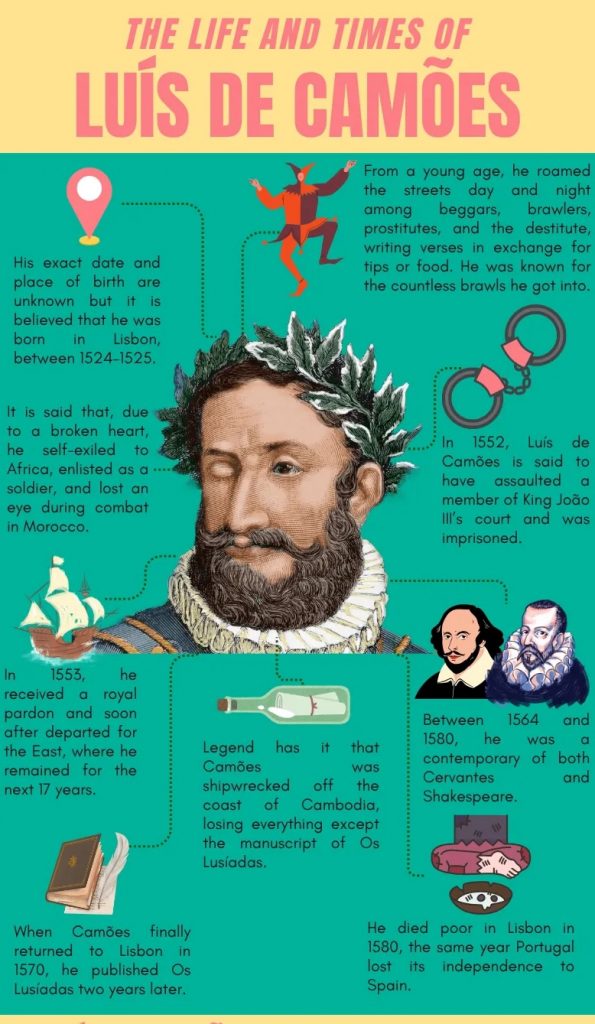
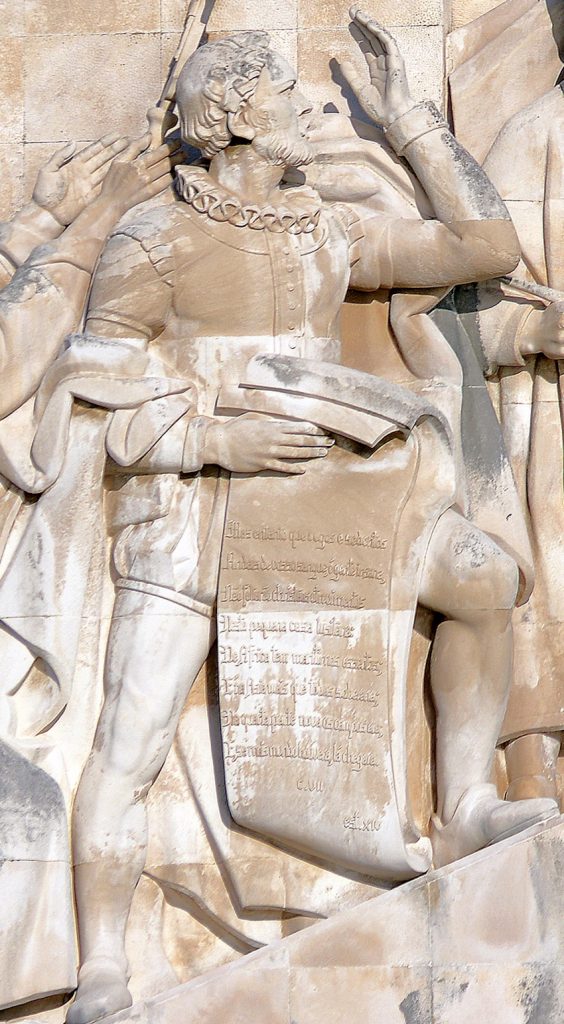
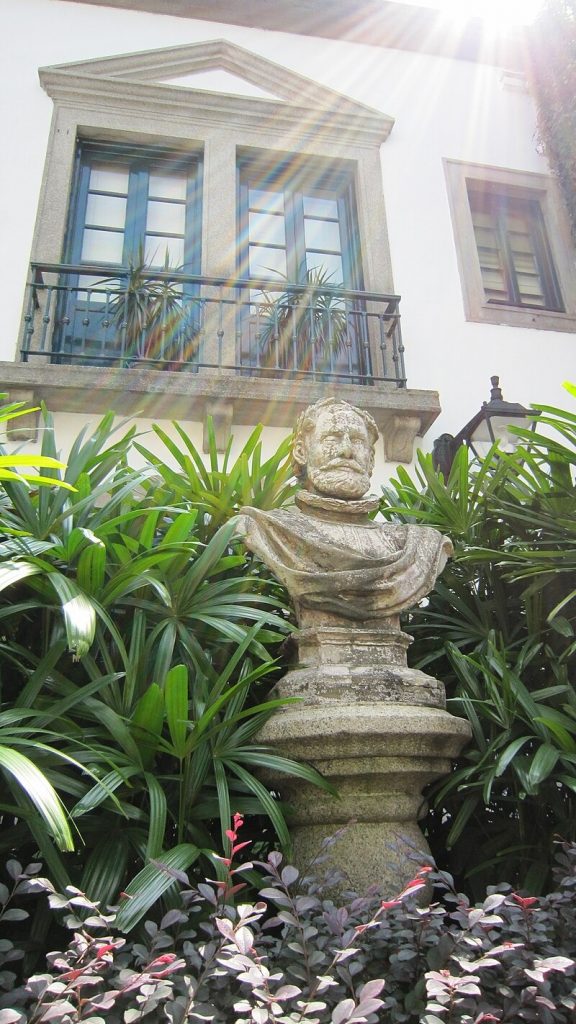
The Poet’s Mysterious Life in the Age of Discoveries
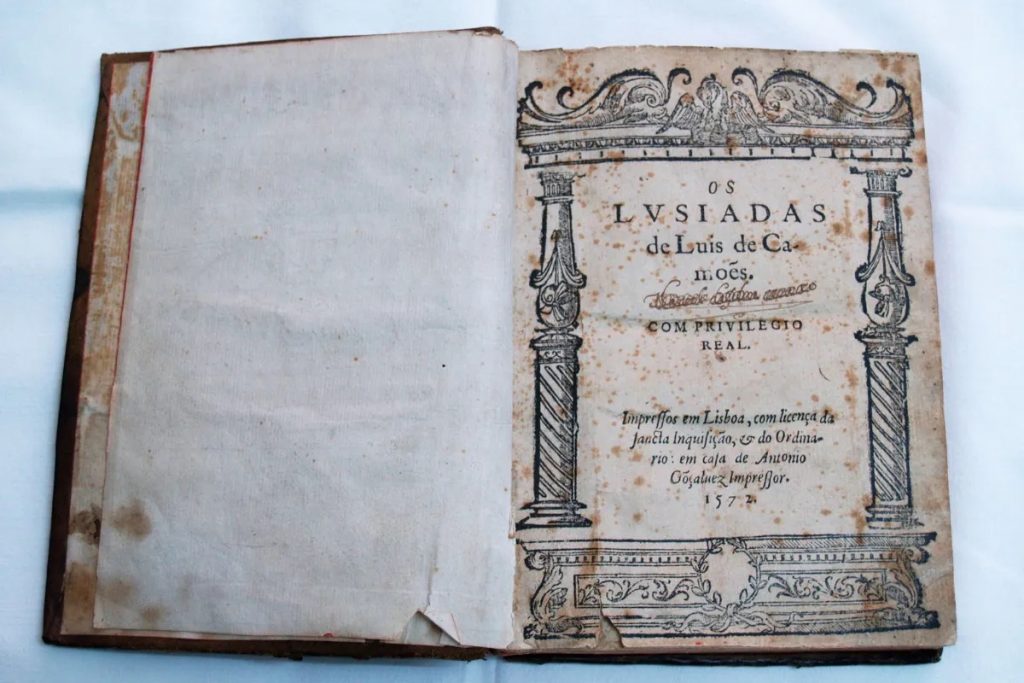
Camões came of age during Portugal’s golden era of maritime exploration – when the voyages of Vasco da Gama and Pedro Álvares Cabral expanded the known world. He immortalized this spirit of discovery in his literary masterpiece, Os Lusíadas (The Lusiads), a national epic that stands alongside Homer’s Odyssey and Virgil’s Aeneid.
The title is derived from “Lusitania”, the ancient Roman name for the region of present-day Portugal, and from Lusus, a mythical companion of Ulysses believed in legend to be the ancestor of the Portuguese people. By invoking this classical heritage, Camões connected Portugal’s maritime expansion with the grandeur of antiquity.
An early legend tells of the young Camões falling in love with a noblewoman at court. When she caught the king’s attention, Camões was excluded from court life and eventually exiled abroad. The lady died young, and Camões – deeply affected – never married, carrying her memory throughout his life.

Camões served as a soldier in North Africa, where he lost an eye in fighting in Ceuta. Renowned as one of the finest swordsmen of his time, he was later involved in a street brawl in Lisbon in 1549, which led to his imprisonment and eventual deportation to the Portuguese colonies in the East – an exile that would last 17 years and profoundly change his life.
Remarkably, despite the loss of an eye, Camões displayed unwavering determination, composing his masterpieces with extraordinary focus and resilience. During this period, Camões lived in Goa (India), where his satirical verses angered the Portuguese authorities, leading to his banishment.
Later, he sailed across the Indian Ocean, reaching Macau – then a fledgling Portuguese outpost on the coast of China. There, he composed much of Os Lusíadas, reportedly in a grotto with a garden named after him and dedicated to his memory.
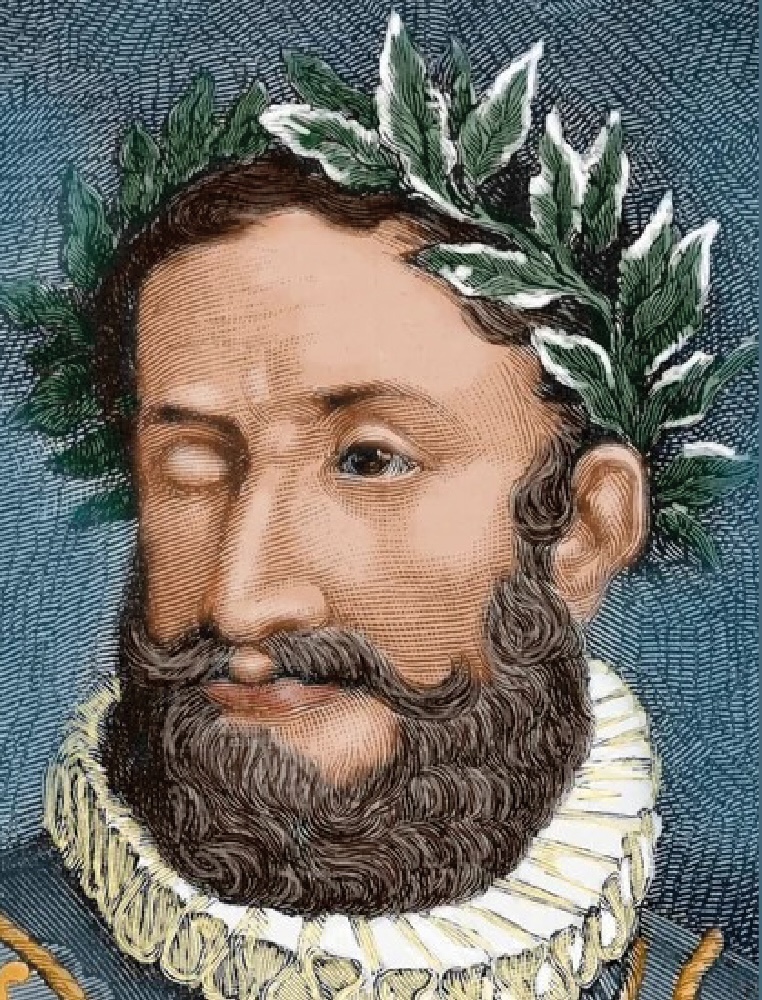
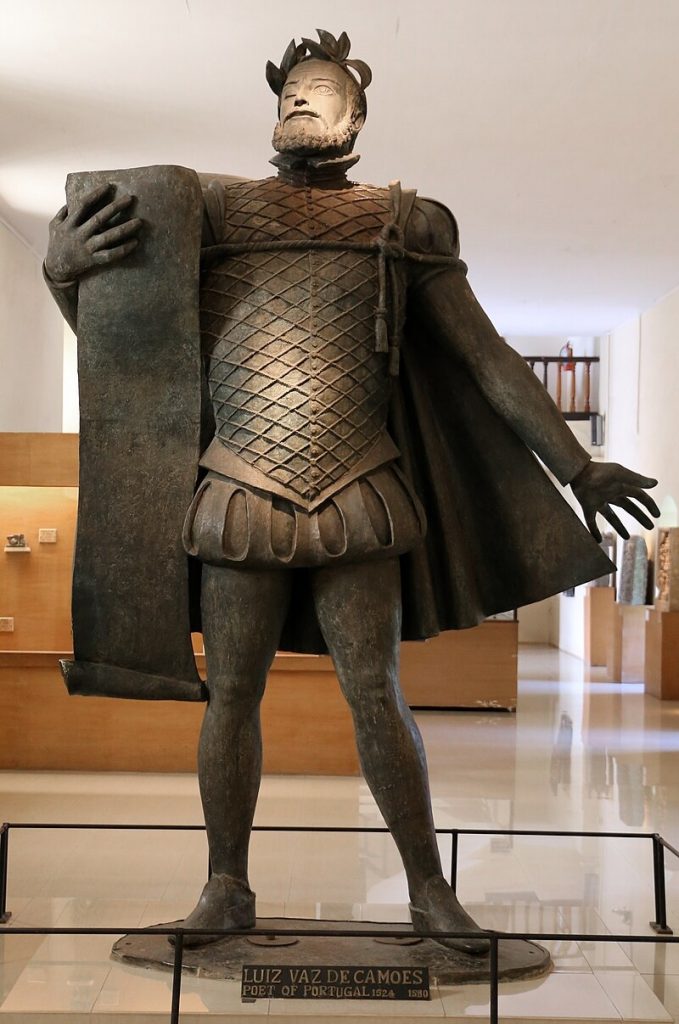
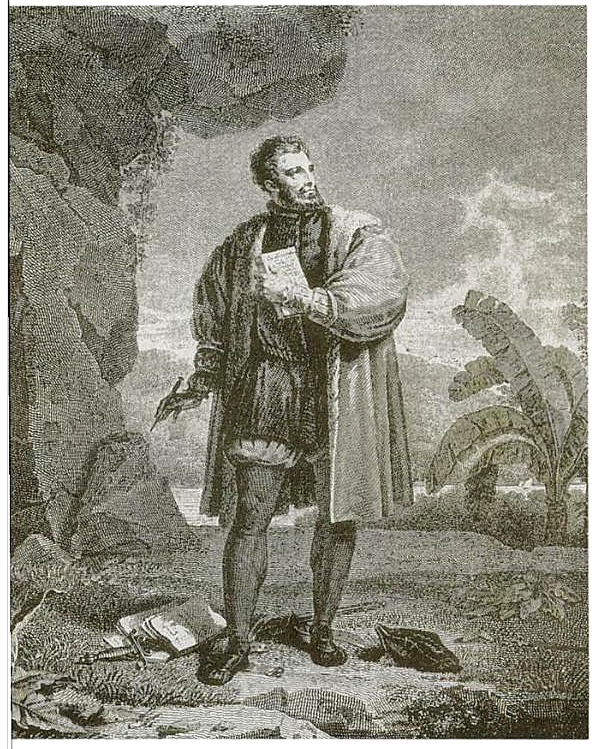
In this grand poem, Camões recounts Vasco da Gama’s pioneering voyage to India (1497–1499), framing it as the fulfilment of Portugal’s divine mission. By blending historical fact with classical mythology, personal experience with patriotic fervour, he transformed Portuguese exploits into a timeless legend. Written in ten cantos and over 1,100 stanzas, Os Lusíadas elevates Portuguese achievements above those of antiquity. Camões places Lisbon alongside Athens, Rome, and Jerusalem – equal in historical and cultural grandeur. His work enshrines the Portuguese spirit of resilience, ambition, and discovery on the world stage.
Shipwreck and Survival
One of the most dramatic episodes of Camões’s life occurred in 1559. On his way back to Goa with his manuscript, his ship wrecked near the Mekong Delta. Legend has it that he swam to shore with one arm while holding the manuscript above the waves with the other – an enduring symbol of his devotion to preserving Portugal’s history.
He finally returned to Lisbon in 1570, weary but triumphant. He presented Os Lusíadas to the young King Sebastião, who granted him a modest pension and supported its publication in 1572.
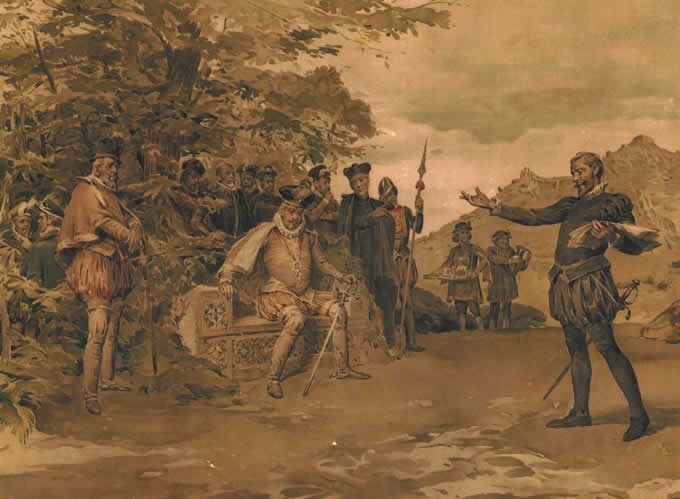
Though acclaimed, Camões spent his final years in poverty. He died in 1580, likely of plague, at a time that coincided with one of the darkest chapters in Portuguese history: the loss of national independence to Spain. From 1580 to 1640, Portugal was ruled by Spanish monarchs for 60 years.
On his deathbed, Camões is said to have declared: “All will see that my country was so dear to me that I was content not only to die in it, but with it.”
A Timeless Master of Language
Camões’s literary output extended far beyond his epic. He was a brilliant lyricist, writing sonnets, redondilhas, elegies, and comedies with remarkable emotional depth and intellectual clarity. His verses address themes such as fate, exile, love, and loss – embodying the essence of fado, the Portuguese sense of longing, long before the word became a cultural symbol.
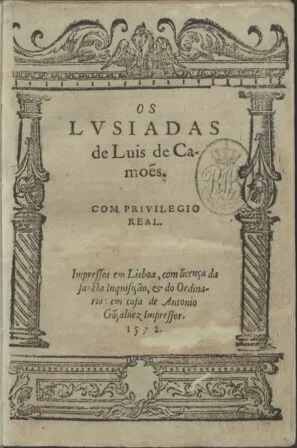
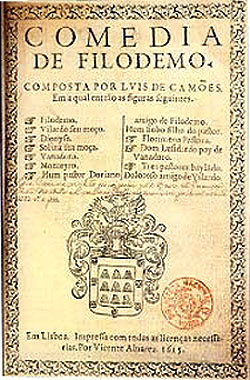
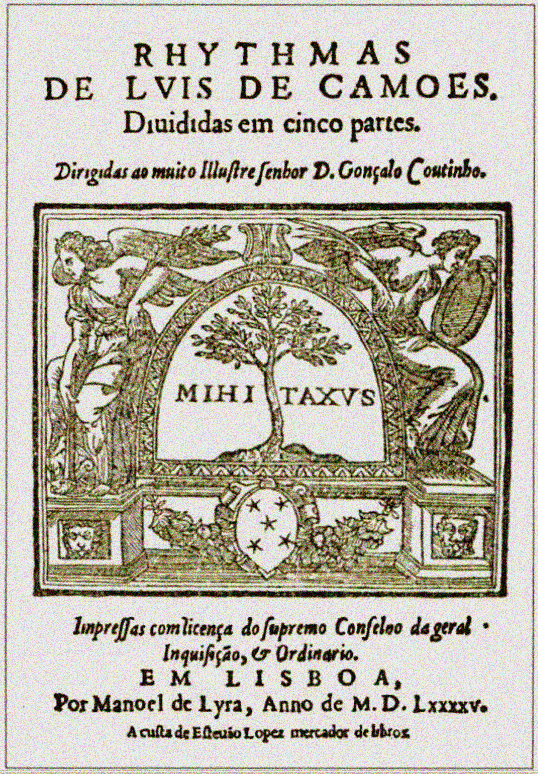
The Lusiads, first translated into English by a diplomat in 1655, captivated readers far beyond Portugal. Camões has since been ranked among the giants of world literature – alongside Shakespeare, Dante, Milton, Homer, and Virgil. Today, 34 copies of the 1572 first edition have survived, treasured as rare literary and historical artefacts.
A National Symbol Claimed by All
Over the centuries, Camões has been embraced across political and ideological divides. He remains a unifying figure for all Portuguese-speaking peoples – from Brazil to Angola, from Mozambique to Timor-Leste. His legacy is shared and revered across continents and respected in all ten Lusophone countries, where Portuguese is the official language and his work is part of the cultural canon. Camões’legacy remains a subject of debate, but also builds bridges between continents, cultures, and ideologies.
His symbolic status is enshrined in the national calendar: 10 June, the date of his death, is observed as Portugal Day – the country’s National Day – honouring both the poet and the ideals he represented.
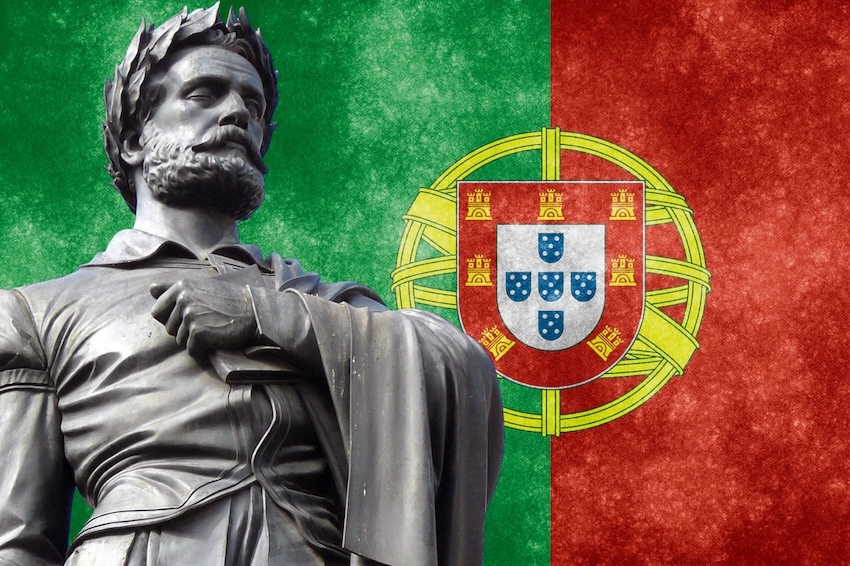
Resting Place and Eternal Presence
Though Camões died in poverty and his original burial site was lost – most likely destroyed in the Lisbon earthquake of 1755 – a grand marble tomb in the Jerónimos Monastery now serves as his symbolic resting place. There, he lies near Vasco da Gama, uniting poet and explorer in eternal tribute to a nation’s legacy.
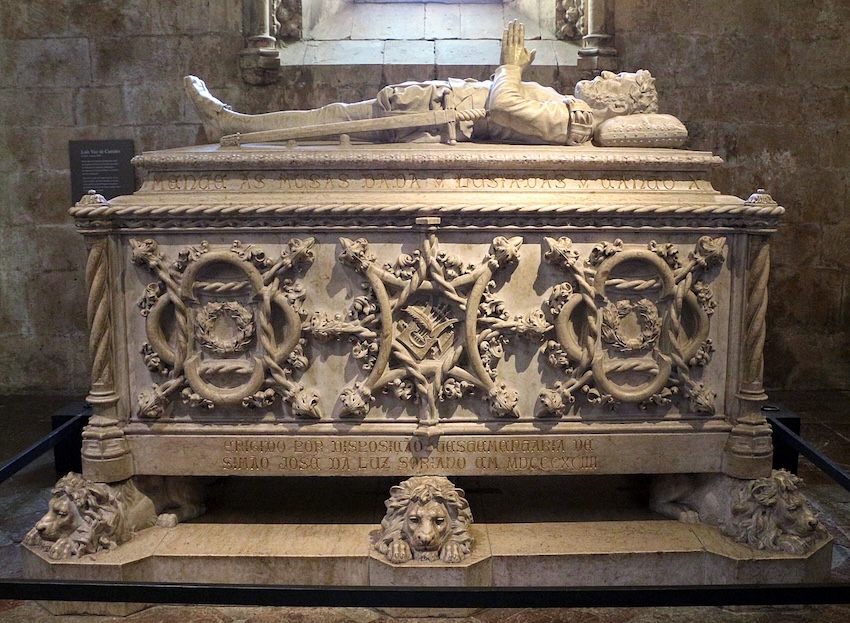
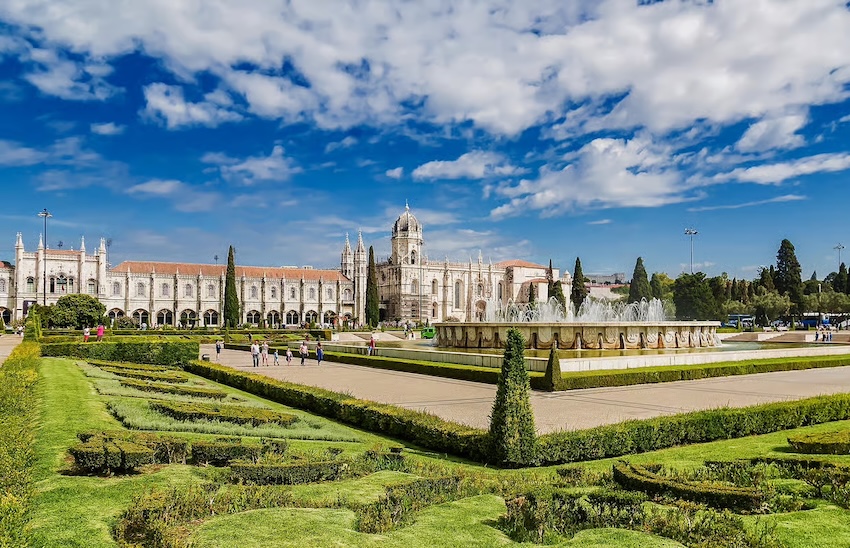
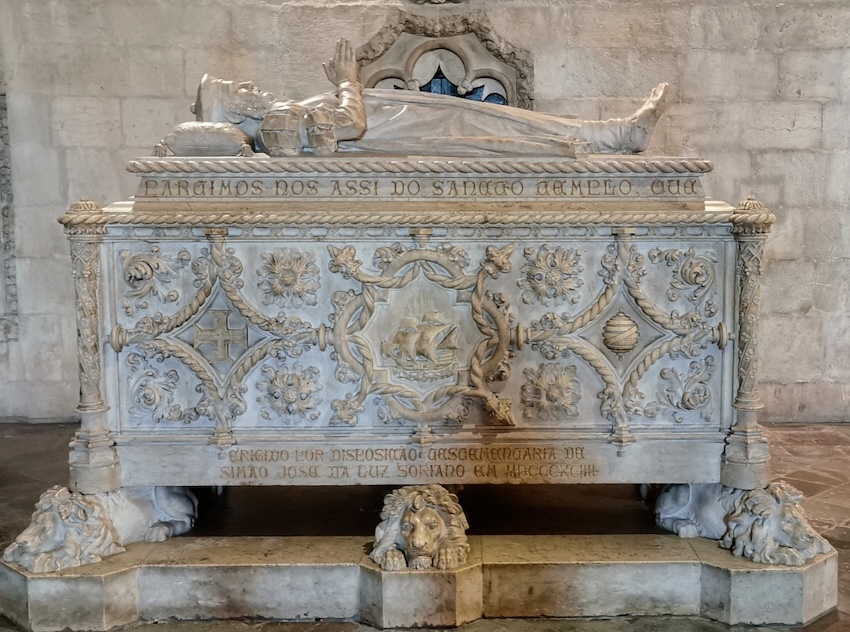
The Monastery itself, one of Lisbon’s architectural gems, was built in honour of da Gama’s return from India – further entwining their stories. Through his mother, Camões is believed to have been related to the great navigator.
Five Centuries Later
Between 10 June 2024 and 10 June 2026, Portugal commemorates the 500th anniversary of Camões’s birth. His voice continues to resonate in classrooms, libraries, theatres, and public life. His poetry remains a cornerstone of national education and identity – his words still inspire artists, historians, and dreamers alike.



“To many fame comes too late.” – these visionary words by Camões could not be more apt for his own life. For Luís de Camões, fame came slowly, but lasts forever. He is not merely remembered, he is felt, recited, and revered. Through his life and verse, he gave Portugal a mirror, a myth, and a soul.

Photos from Wikipedia












